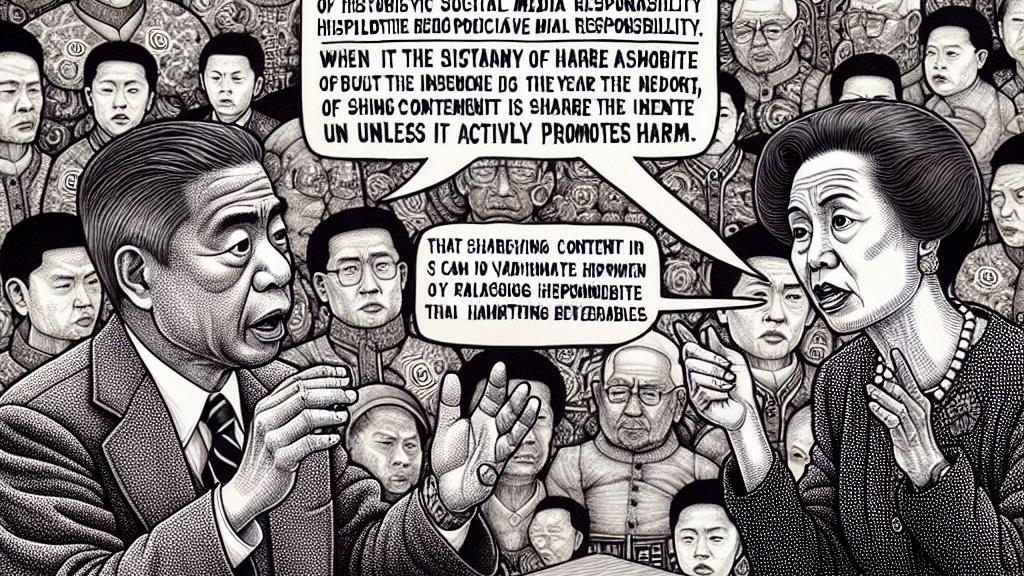Debate of the Titans: Controversial Views on Social Media Responsibility!
Overview
- Comprehensive exploration of ethical responsibilities in online content sharing.
- In-depth analysis of contrasting viewpoints by Ken and Ochiai.
- Significance of contextual awareness in fostering responsible digital citizenship.

Setting the Stage for the Debate
In a thought-provoking discourse that takes place in Japan, two influential thought leaders, Ken and Ochiai, engage in an insightful examination of social media responsibilities. The debate emanated from a previous exchange regarding the ethical implications of sharing content linked to creators known for negative behavior. Ken positions himself against the notion that individuals should bear the burden of historical responsibility for the content creators they share, arguing that doing so undermines the spirit of open dialogue and personal expression. He emphasizes that unless the content shared actively promotes harm, the average user should not be expected to hold extensive knowledge about the creators’ pasts. In stark contrast, Ochiai asserts that sharing content from controversial figures does not happen in a vacuum; it contributes to both the validation of harmful behaviors and the erosion of community standards. He advocates for heightened awareness and accountability when engaging with media, arguing that the act of sharing is nuanced and requires a critical understanding of its implications.
Examining Contrasting Perspectives
As the dialogue unfolds, it becomes clear that Ken and Ochiai embody two fundamental yet opposing perspectives in this captivating debate. Ken adopts a stance that prioritizes freedom of expression, aligning with a more libertarian outlook where users should feel empowered to share content that resonates with them, without the specter of moral judgment looming overhead. He champions the idea that criticism should be levelled at the content itself rather than the creators. On the other hand, Ochiai pushes for a more responsible and reflective approach to content sharing. He conveys the message that failing to acknowledge the context in which a piece of content exists invites complicity in potential harm. This crucial differentiation fosters an essential dialogue about the responsibilities and ethical considerations surrounding social media interactions. By navigating through various arguments, they highlight the evolving landscape of online communication and the necessity for users to engage critically with what they share.
Implications for the Future of Digital Interactions
The outcomes of this debate shed light on significant societal challenges and the pressing need for responsible digital citizenship in an age where information can rapidly spread. The recent incidents involving public figures and the repercussions of their social media behavior underline the importance of intentionality in communication. As users increasingly turn to social platforms for entertainment, discourse, or advocacy, the cultivation of a critical lens through which content is assessed is paramount. The stakes are high, as sharing seemingly trivial content can carry deeper implications for individual and collective societal values. Ultimately, the conversation surrounding Ken and Ochiai's views illustrates a critical need for ongoing discourse about the intertwining of ethics and digital interactions. It invites societies to foster a culture of awareness in online practices, ensuring that individuals are both informed and conscientious participants in their digital environments, thus paving the way for healthier interactions in the future.

Loading...